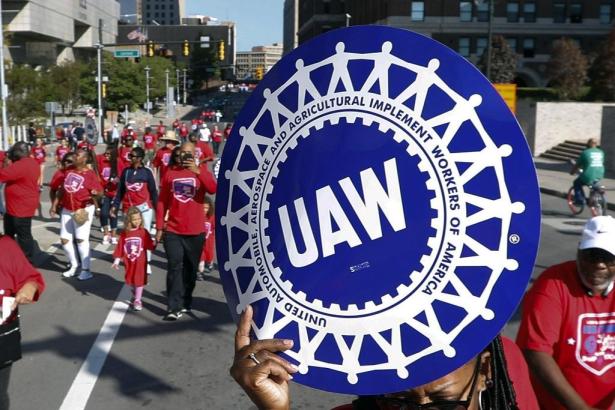A big part of the decades-long radicalization of the Republican Party has been the embrace by Northern-state Republicans of the neo-Confederate positions and policies of the Republican neo-Dixiecrat South. In 2011, that embrace expanded to include the South’s longtime war on adequately paid labor in general (see: slavery) and unions in particular. Wisconsin’s newly elected Republican governor, Scott Walker, took up arms against his state’s unions, effectively ending collective bargaining for the state’s public-sector workers and then passing a “right to work” law, enabling private-sector workers to receive the benefits of their union’s collectively bargained raises and benefits while exempting them from paying any dues to their union—a measure that invariably weakens worker and union power. As Wisconsin had been the first state to legalize collective bargaining for state employees, this marked a historic overturning of the state’s social contract.
An even more historic overturning soon followed on the other side of Lake Michigan. Michigan, after all, had been the birthplace of American mass unionization, as its historic 1937 sit-down strike of the United Auto Workers had been the breakthrough in workers’ efforts to unionize American manufacturing and inaugurated the mid-20th-century era of countervailing union power. In 2012, however, the Republican-controlled Michigan legislature passed a right-to-work law of its own, which the Republican governor then signed into law.
History, however, has a way of reversing itself, and history in democracies can be swayed by the mobilization of popular will. Last November, Michigan voters returned Democratic Gov. Gretchen Whitmer to office and turned out the majority-Republican legislature in favor of a majority-Democratic one. And yesterday, that legislature’s lower house voted to repeal the state’s decade-old right-to-work law and to reinstate the law (which those Republicans had also abolished in 2012) requiring that workers be paid the “prevailing wage” (in effect, a union-level living wage) when working on publicly funded construction projects. Those two bills will soon likely be passed by the state’s Senate and signed by Gov. Whitmer. The move also enhances Whitmer’s bona fides as a national Democratic leader, one whose name invariably comes up among Democratic activists and pundits in discussions of who the Democrats should be running for president next year.
This year’s revival of union fortunes in the onetime cradle of unionism may not yet be complete. The UAW—once America’s pre-eminent union and the only social democratic institution in American history to have wielded real power—had fallen on bad times in recent years, with production offshored, membership greatly reduced, and any number of union leaders, including two past presidents, doing hard time for dipping into the union’s treasury to fund modestly lavish lifestyles. In response, the Justice Department went to court demanding changes in union governance, and a consent decree between the union and the DOJ called for electing its officers through rank-and-file elections rather than at national conventions, as had been the practice. Those elections have now been completed, and an insurgent reformer ticket has won all but one of the posts it sought on the union’s governing board, and is leading for the final slot, that of union president. Reform candidate Shawn Fain holds a 645-vote lead over incumbent president Ray Curry out of the nearly 140,000 votes cast, but 1,608 challenged ballots have yet to be counted.
The swing of Michigan back into the pro-union column and the prospect of a revived UAW may both be part of the larger movement in public sentiment, which last year reached the highest approval ratings for unions (over 70 percent), as measured by both Gallup and Pew, since the mid-1960s. None of that, alas, is sufficient to restore the modicum of worker power that can only come with a vibrant union movement. That will require a strengthening of labor law to again give workers an unencumbered right to join unions, which business and Republican-dominated courts and administrations have stripped away over the past 60 years. That said, let’s hope what’s happening in Michigan this week doesn’t stay just in Michigan.
Harold Meyerson is editor at large of The American Prospect.
Read the original article at Prospect.org. Used with the permission. © The American Prospect, Prospect.org, 2023. All rights reserved.
Support the American Prospect. Click here to support the Prospect's brand of independent impact journalism


Spread the word